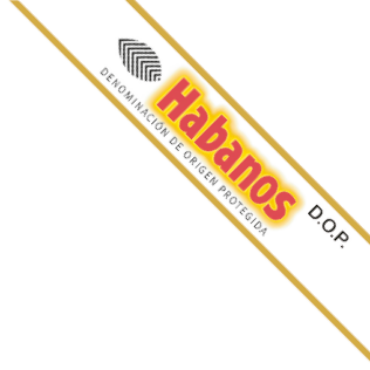How mini cigars are made
The first records of tobacco machine production in Cuba date back to the second half of the 19th century. However, significant developments were made only after the Second World War and then the process was more firmly established in 2001, when the tobacco production company Internacional Cubana de Tabacos, S.A. launched its production activities.
MANUFACTURING PROCESS
There are six stages in the production process of mini cigarillos:
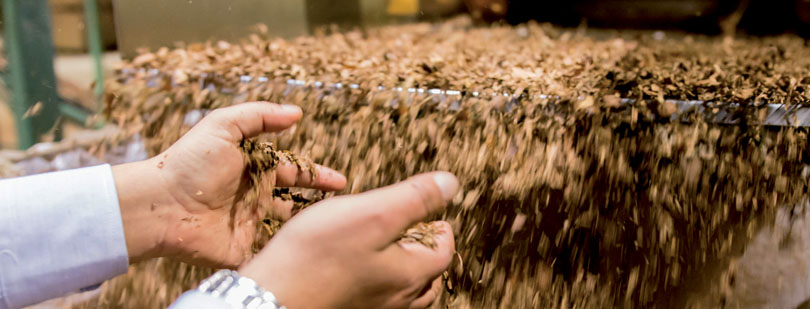
1. PREPARING THE SHORT FILLER AND SELECTING THE RAW MATERIALS
The production process begins with preparation of the filler and selection and moistening of the wrapper and binder.
Preparing the filler is a crucial stage, since it determines the cigar’s final aroma, flavour and strength. Because each brand has a unique blend, the proportions of the different tobacco varieties are subject to rigorous controls to ensure that all the characteristics stay the same.
After the ingredients for each blend have been weighed, they are passed through a mixing cylinder with sprinklers. If the blend is very dry, it is moistened. After mixing, it is left to stand for 24 hours.
The mixture is then transferred to a blender, where the leaves are chopped up, the veins removed and any dust extracted to obtain the filler, which is then left to stand for 72 hours to homogenize the moisture content until it is within the range of 12% to 13%.
The filler is wrapped in the binder to form the bunch, while the wrapper will provide the finishing touch and give the cigar it’s perfectly smooth texture. The leaves for the wrapper are moistened and left to stand before being pressed and sorted. The binder leaves undergo a similar process, but are not sorted.
During this stage, carboxymethyl cellulose is used to create the adhesive that secures the binder and then the wrapper.
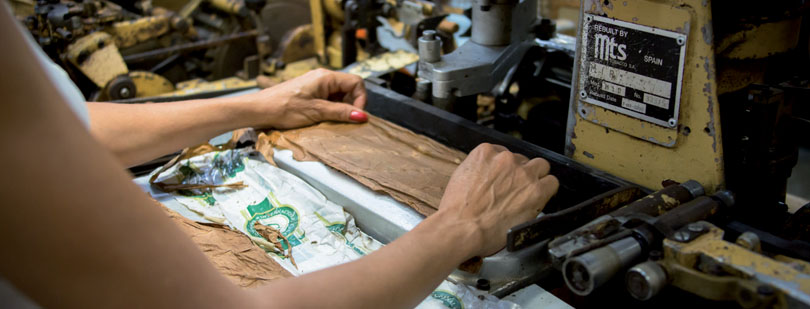
2. BUNDLING THE MINI CIGARILLOS BY MACHINE
When the raw materials are ready, the cigars are created in a rolling machine, which is used to produce different formats. The cigar-rolling process uses one of two bundling methods:
- The traditional system uses a machine that features a hopper for the filler and two parts joined together: one to form the bunch and roll the binder around it, and another to roll the wrapper around the binder. The machine is operated by two workers and a feed belt.
- The bobbin machine uses a similar system to the traditional one, the only difference being that the workers are replaced by bobbins where stamped-out binders and wrappers are placed. Only one worker is needed to change the bobbins and feed the filler into the machine. The machine can bundle up to 8,000 units in eight hours.
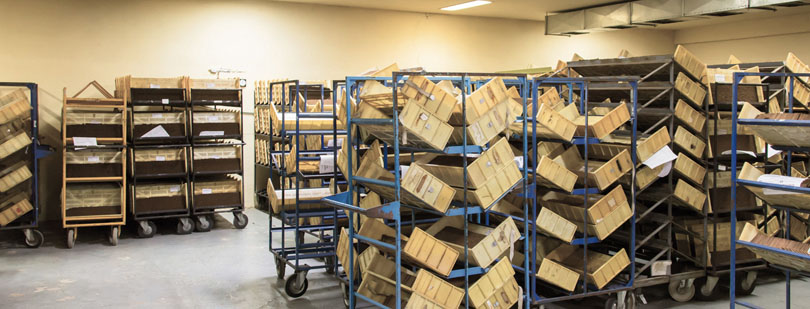
3. DRYING THE MINI CIGARILLOS
The cigar is left in a drying chamber until it reaches the desired moisture level (12%-13%). It is also crucial to control the particle size, since this directly affects the tobacco’s smoking characteristics.
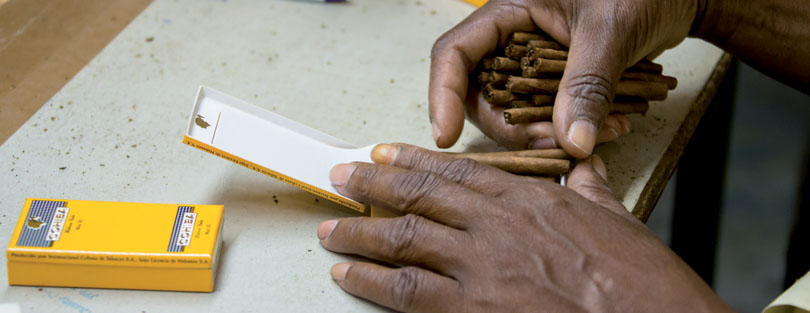
4. PACKAGING THE MINI CIGARILLOS
The presentation of our cigars is of paramount importance and we treat every last detail with painstaking care. At the moment, part of this process is carried out manually and part is mechanized, although more and more machines are being introduced to carry out the entire packaging process. The ultimate objective of this stage is to ensure that the end product fulfils all aesthetic and quality parameters and reaches the consumer in perfect condition.
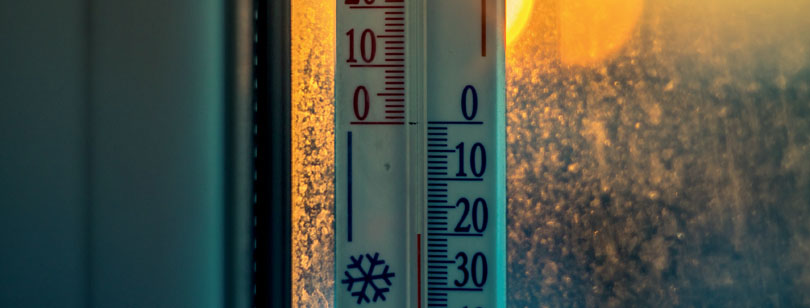
5. FREEZING THE MINI CIGARILLOS
No chemicals are used in the disinfestation process, so it is totally harmless and environmentally friendly. Once packaged for sale, the cigars are frozen at -20°C for 120 hours before being transferred to the finished-goods store. This process removes all insects and eggs that may have appeared during any stage.

6. SHIPPING
The process ends when the cigars are sold in the Cuban domestic market or exported abroad. Most exports are made by sea in refrigerated containers at -20°C. The rest are exported by air.
All stages of the production process are overseen by a quality management specialist. The function of this specialist is to ensure that the production process complies with all specifications. This is done with the support of a laboratory equipped with state-of-the-art technology to accurately check each quality parameter.
In order to improve our processes and products, we have also implemented a strict quality-control system based on standard ISO 9001: 2001, which allows us to provide our customers with the highest quality standards.
